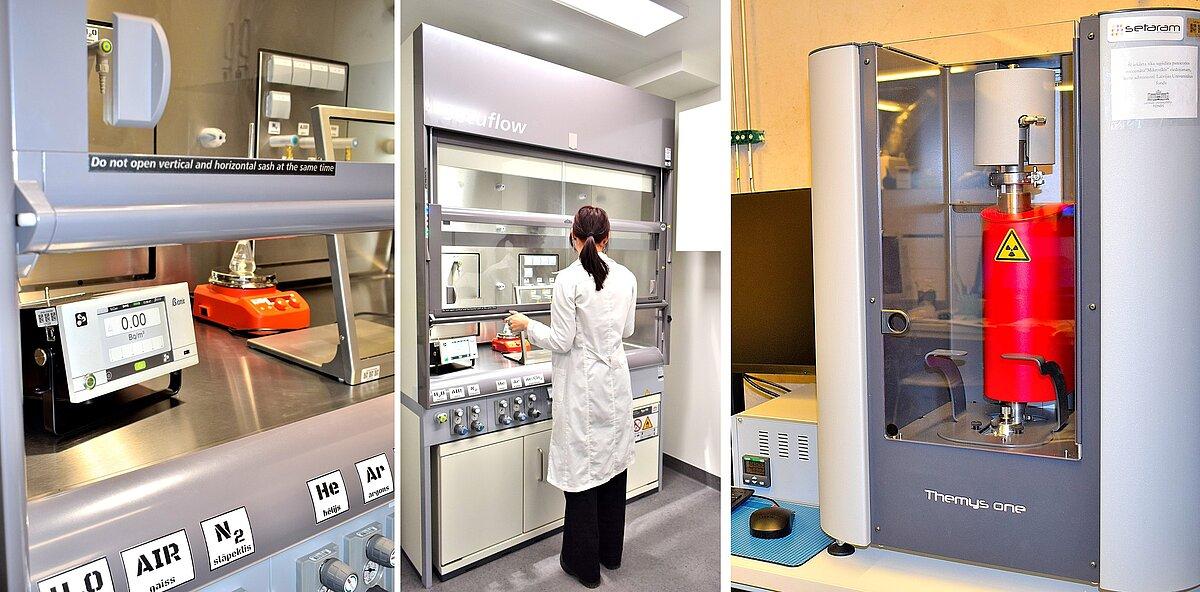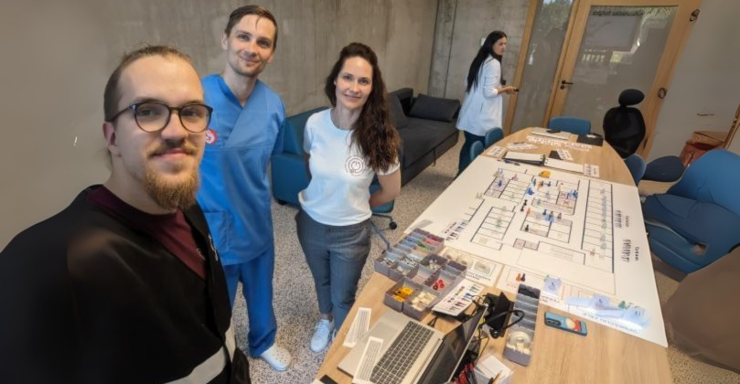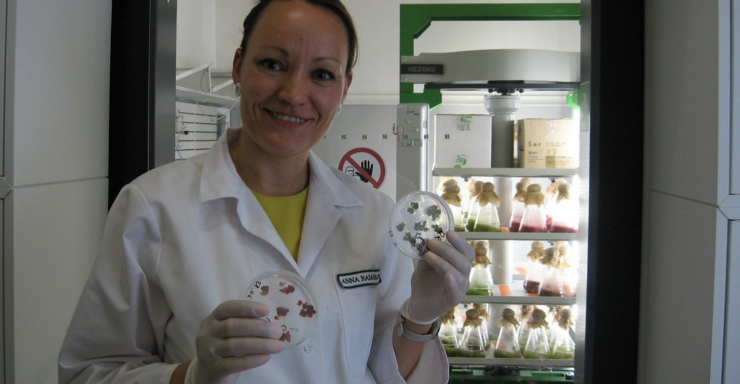The Institute of Chemical Physics at the Faculty of Science and Technology of the University of Latvia (UL) has recently been equipped with new scientific devices and tools. The Radiation Chemistry Laboratory's resources will support the implementation of local and international projects, including research in nuclear fusion within the EUROfusion consortium and strengthening collaborations with European research institutions such as CERN.

The UL Radiation Chemistry Laboratory conducts innovative scientific research in radiation chemistry and radiochemistry, which has practical applications in energy and medicine. It also provides training opportunities for UL students.
As part of the project "Acquisition of Simultaneous Thermal Analysis Equipment and a Portable Tritium Monitor for Radiation Chemistry and Radiochemistry Research", the laboratory acquired a Simultaneous Thermal Analysis device, "SETARAM Themys One", and a portable tritium monitor "βionix 3 CMP” with additional accessories. This equipment will be available not only to UL students working on theses in radiochemistry and radiation chemistry but also to researchers implementing various local and international projects, including participation in nuclear fusion research within the EUROfusion consortium.
The simultaneous thermal analysis equipment, which combines thermogravimetry (TG) and differential scanning calorimetry (DSC), enables the analysis of thermal stability and other processes of solid organic and inorganic materials before and after irradiation with various types of high-energy radiation, such as photons, electrons, accelerated ions, and neutrons. Meanwhile, the portable tritium monitor will detect the radioactive isotope of hydrogen, tritium, in different atmospheres.
Another project, "Equipment for Innovative Applications of Radionuclides in Medicine and Energy Research", has supplemented the laboratory's infrastructure with a stainless steel chemical fume hood for handling solid and/or liquid radioactive substances. A second fume hood equipped with a powerful filtration system for working with volatile and chemically aggressive radioactive substances is currently being installed.
The acquisition and installation of these fume hoods significantly contribute to employee safety and environmental protection when working with high-activity and high-dose radiation sources. Additionally, they help minimize risks, reduce contamination, and lower employee radiation exposure.
"The newly acquired equipment offers students a unique opportunity to gain hands-on experience with various radionuclides and enhances the work environment in the radiochemistry laboratory. By creating a safe and modern lab environment, we are encouraging new specialists to grow in this field, which is currently underrepresented in Latvia," said Associate Professor Dr. chem. Elīna Pajuste and Senior Researcher Dr. chem. Artūrs Zariņš from the Radiation Chemistry Laboratory of the Institute of Chemical Physics.
The laboratory obtained 225,000 EUR through the UL Foundation's "MikroTik" project competition in the fields of natural sciences, technology, and medicine to support its development.
Donations exceeding six million euros from the UL Foundation Platinum Patron “Mikrotīkls” Ltd. have significantly contributed to the development of Latvian science, supporting fundamental and applied research. The UL Foundation administers these donations.


